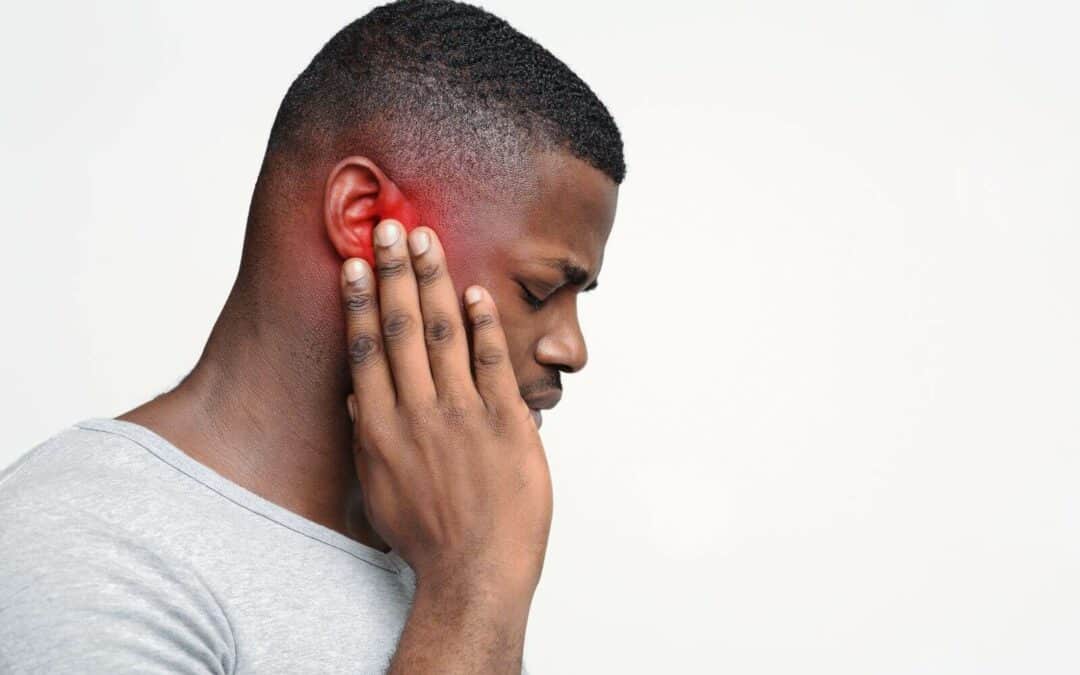According to the Centers for Disease Control and Prevention, 20 million Americans suffer from tinnitus, a condition in which a persistent sound is heard in the ears while no external sound is present. Recent studies indicate that people with tinnitus symptoms experienced an increase in severity of the condition over the course of the pandemic, as well as an increase in overall new cases.
Depending on the severity of tinnitus symptoms, some people describe the condition as manageable, while others report extreme levels of anxiety and distress. While treating the underlying cause is always the first step, you can also use breathing techniques to lower stress levels and lighten the anxiety that stems from living with tinnitus.
What is tinnitus?
Most often described as a ringing in the ears, tinnitus can take many forms and some people describe theirs as a whooshing, clicking or buzzing sound. What makes tinnitus unique is that it is usually a subjective condition. Which means that while the patient can hear the sound, it is not happening in the environment and others cannot hear it.
Causes of tinnitus
According to Lamar University audiologist Eldre Beukes, stress and tinnitus are connected. “There’s a link between increased stress and tinnitus either initiating or worsening,” explains Beukes, offering a reason why tinnitus spiked during the pandemic.
But stress itself does not cause tinnitus, which is a symptom of a health issue, rather than a disease in itself. Hearing loss remains the most common reason people have tinnitus, and excessively loud noise is the most typical culprit.
When the ears are exposed to dangerously loud noise, the inner ear cells are damaged. These cells collect noise and turn it into sound information that is then sent to the brain. When we lose these cells due to noise damage (or aging, which has the same effect), we are no longer able to collect the entirety of the sound spectrum and we lose access to frequencies.
Other reasons people might experience tinnitus include circulatory system problems, ear infections, wax buildup, or Ménière’s disease.
Helpful therapies for tinnitus
Treating the underlying cause of tinnitus can successfully alleviate symptoms. For instance, intervening in hearing loss with hearing aids is proven to bring relief. Because ninety percent of people with tinnitus also have hearing loss, many hearing aids are equipped with programs that specifically counteract tinnitus symptoms. These programs might offer white noise or other forms of ambient sounds that mask the ringing of tinnitus.
Five Breathing Techniques for Tinnitus Anxiety
Before attempting each breathing technique, find a comfortable resting or reclined (lying down) position. For some people, intentionally moderating breathing can bring up anxiety in itself. Go slowly — it will get easier with time — and one style might be more comfortable than another, so spend two or three minutes practicing each technique.
Equal parts breathing
This is a great beginner breathing exercise! The length of inhale/exhale can be shortened or lengthen depending upon your comfort level and the natural rhythm of your breath. The important aspect of this technique is to make the duration equal.
Inhale through the nose for four counts. Exhale through the nose for four counts. Repeat.
Box Breathing
Inhale through the nose for four counts. Pause four counts. Exhale through the nose for four counts. Pause for four counts. Repeat.
Extended exhale
Breath in through the nose for four counts. Breath out through the mouth of six counts. Repeat.
4-7-8 Breathing
Inhale through the nose for four counts. Hold the breath for seven counts. Exhale slowly through the nose for eight counts. Repeat.
Bee Breath
Place your index fingers on the fleshy cartilage of the ear, in front of the ear canal. Gently press inward to cover the opening of the ear canal. Inhale through the nose and fill the lungs. As you exhale and with your mouth closed, make a high pitched humming sound (this breath has been compared to the buzzing sound that bees make). Repeat.
Schedule a hearing consultation
If you’re experiencing tinnitus symptoms, schedule a hearing consultation today. Our team of highly trained hearing health professionals will guide you through a simple exam, review your results and work collaboratively with you to chart your best path forward.

